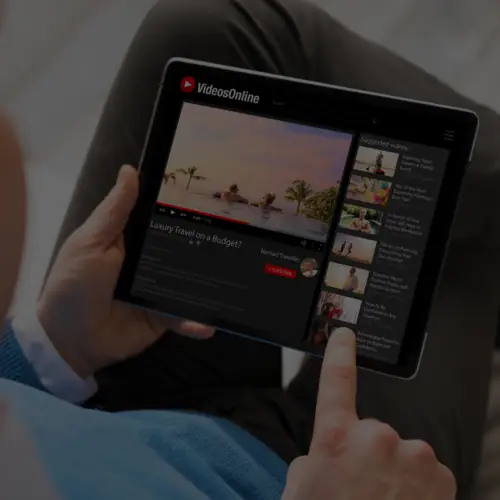07 Jan Social Media is a Waste of Time, Part II
In Friday’s post, I admitted the social media can be a waste of time. I talked about doing some unproductive things online and how, despite that (or even because of that), marketers should be paying a LOT of attention to social media marketing. But as many of you have commented in the first post, social media is really not a waste of time at all. Those who say it is might as well be saying, “I haven’t figured out how to use this social media stuff.”
So let’s talk in Part II about how social media can make you be productive. That can be a book in and of itself, so I’ll just hit some highlights to give you the sense that all these dumb little tools have a pretty positive flipside.
Twitter as productivity tool
 People seem to struggle the most with wrapping their arms around Twitter, Jaiku and microblogging generally. My wife giggles just a little bit every time I saw Twitter. And yes, there are a lot folks who feel inclined to let us know every little nuance of their life. But Twitter serves two purposes for me, one social, one productive.
People seem to struggle the most with wrapping their arms around Twitter, Jaiku and microblogging generally. My wife giggles just a little bit every time I saw Twitter. And yes, there are a lot folks who feel inclined to let us know every little nuance of their life. But Twitter serves two purposes for me, one social, one productive.
- While an individual tweet may not tell you much, the collection of them can give you snippets into someone’s life that you’re not likely to otherwise get. So there’s social value here.
- From a productivity standpoint, I find the my Twitter network is better than my blog reader. If something significant is happening, people are Tweeting about it. I’ve learned about new time-saving tools, like Trip-It over Twitter. I’ve heard about breaking news, and I’ve found some of my best reads on topics I care about that way. Here’s how Twitter helped in a disaster. It really works.
Blogs as productivity tool
 The average blog has one reader, or so I’m told (I’d heard earlier it was about 7). Professional journalists like that one seem to be threatened by the blogosphere, perhaps for good reason. Given that Technorati tracks 112.5 million blogs right now, it’s a mathematical certainty that most are either crap, or niche. I have two blogs designed for family members online. In fact, they’re locked down.
The average blog has one reader, or so I’m told (I’d heard earlier it was about 7). Professional journalists like that one seem to be threatened by the blogosphere, perhaps for good reason. Given that Technorati tracks 112.5 million blogs right now, it’s a mathematical certainty that most are either crap, or niche. I have two blogs designed for family members online. In fact, they’re locked down.
Here’s the great thing: Who cares? Google, Technorati and other search engines have it set up so that these irrelevant blogs are, well, irrelevant. They are unlikely to show up in many search results, be cited by a journalist, or change anyone’s life. But if you’re buying a new cell phone and not checking enGadget, you’re nuts. Blogs are just websites, people, and like all types of websites, they vary in value.
Finally, there are not enough corporate interests out there to crank out all the niche information people are searching for, and blogs do that. Blogs are one of the main reasons that you can find pretty much anything on Google. If you don’t get that, well, I can’t help you.
Social bookmarking/news aggregation sites as productivity tool
 A lot of folks I talked to don’t understand how Digg, del.icio.us, NewsVine and other sites can be used as productivity tools, either. (While del.icio.us is a handy way to keep your bookmarks with you from one machine to another, we’ll talk about it from a social networking standpoint here.)
A lot of folks I talked to don’t understand how Digg, del.icio.us, NewsVine and other sites can be used as productivity tools, either. (While del.icio.us is a handy way to keep your bookmarks with you from one machine to another, we’ll talk about it from a social networking standpoint here.)
The obvious first answer is that these tools are filtering mechanisms. If we know that there’s tons of crap out there (see blog section), then we can benefit if real human beings will point out the stories that aren’t crap. If enough folks agree about a particular story, it bubbles up to the top and gets passed around. That’s good.
But you can also do social networking stuff with these. Jonathan Colman of the Nature Conservancy (who I had the pleasure to share time with on a recent panel) has built a reputation on Digg (with 585 friends and 1,041 fans). If you want to know the latest news on conservation and the environment, why do all the work yourself? Jonathan’s already reading all this stuff. Let him tell you the good stuff.
Similarly, when I wanted to learn more about AP writer Michael Liedtke for a client, I found he (or someone) bookmarked all his articles on Newsvine. Tremendous time saver for me, and good online portfolio for him.
Summary
I could go on for days (because there’s a lot I left out), and hope others will round this out in the comments section. If you think social media is dumb, a waste of time, or a bunch of amateurs, please know this: Sometimes you’re right. Often you’re wrong. Social media is a powerful thing. That’s why so many people are using it that it’s no longer just the early adopters.
For any technology to jump the chasm from early adopters to early majority means that it is solving a problem in a way that is superior to what it is replacing. Crowdsourcing, the wisdom of crowds and the democratization of content creation means that we’re going to get some junk created. But it also means we’re getting some really powerful content. I hope you’ll take some time to figure out the difference.
Technorati Tags: social media marketing,social media agency,social media,productivity,social bookmarking,blogs,social networking






